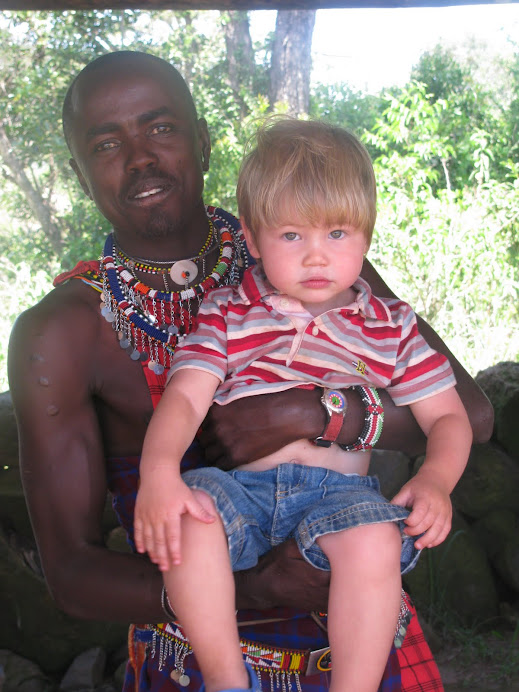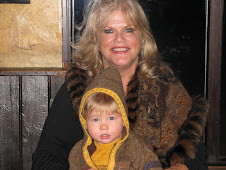They say that Danny was driving too fast, that he was inexperienced, that he panicked on the turn of road between Magadi and Kiserian, that barren road that slips out of Lake Magadi, a salt mine that looks more like an oil slick, nesting up against one of the deep clefts of a Rift Valley escarpment, black and shallow. On the road again bordered by rubble and scrub, school children trek home in the middle of it as if no car would ever come to carry them away or toss them, maimed and bleeding, into the dry, toothy brush.
Danny stops for brick fuel for his household, but it is too dear and he pulls the Land Cruiser back onto the route home, gently guiding it away from all the amenities of civilization. Here, hyena laugh in between whoo-oops; scorpions furl their tails; lizards lounge; and an occasional lion scans the flatlands for easy prey, especially at night.
And then something booms; Danny thinks the world has been shaken to its very core while he nurses the Land Cruiser back to the center line. It pulls mightily, shockingly to the right and flips. Twice. The windshield shatters; the vehicle heaves as if alive. Danny is alive, thanking all heavens, shocked in releasing himself from the seatbelt and sliding onto the ground, a searing pain in his left shoulder, a numbing in the back of his skull, a dull non-recognition of all that lies dead and breathless around him.
Maasai come; they have seen the crash from some distance. Please, says Danny, I don’t know the answers to your questions. I can’t answer. They call his brother; they call the lodge at which I’m staying and where he dropped me and my friend for the weekend, an hour and a half away; they call one of Danny’s patrons; and then they call the Kiserian police. Where can help be? What can they do?
They right the truck, change the tire, and manage, despite the fact that only the parking brake works, to stop the car as needed along the way. A herd of camels looms ahead of them in the dark on the road, driven by a small boy with a big, flimsy stick; donkeys stand leaden-eyed in their way in the middle of the road; children flock from tin huts to wave them on as they herk and jerk forward. Danny cannot speak; he seems to be reeling and then, sitting so still that he cannot feel a heartbeat or hear his own breath. God was with me, he tells me later. Thank goodness you were wearing your seatbelt, I say. No, it was God. I felt his hands locked together, tightening against my chest as he held me to Him so I would not die.
The accident happened at 4.45 on Friday afternoon; Danny will not make it home to his wife and girls until 2.30 the following morning, having sequestered the car at the police station, given a report and gone to see a doctor. The people who helped me, he says later, they stole the tire jack and the two back speakers in the car. And Ksh 4,000 that was in my front pocket. I noticed nothing, he adds.
Ah, such is Kenya.
Since Friday night when I heard about what happened to Danny, in a car which I’d borrowed from a very kind friend, I’ve had a knot the size of Texas in my belly. A fist, really, that opens and closes and seizes my gut at random. Somebody twists this knot cleverly so that its presence never quite abates.
When I see Danny the following Tuesday: How did the girls take it? (His’s daughters, Blessed and Faith, are four and nine, respectively.) Your wife? They smiled, but they were very disturbed, you know this was lucky and not so lucky. Elizabeth brought them in and each took a hand and held onto it, and they kept asking me, Are you here? Yes, and I told them very softly, I am home now.
**********
Yes, Shompole, our weekend getaway, is exquisite, a flowing blend of wood and stone and whitewashed, womanly curves, each banda tucked so deftly into the face of the Nguruman Escarpment that you think it could all disappear in a wink. Yes, the heat has been horrific, but the storm last night, what a thundering and magnificent entity to behold. How cool that rain, how fine that wind. Yes, we saw a three brother lions stalking wildebeest and zebra by the river’s edge, yet holding as still as sphinxes in the grassy plains while considering theif possibilities.
Cheetahs – a mother with two yearling cubs – run off with our imaginations. Suddenly, they sprawl across the dirt, long as golden, spotted paragraphs, arranged in such a way as to make one think they have no skeletons. And I think of Danny sprawled across that cusp of Magadi Road, and look for some solace in the purple sky.
Of course, we cannot take our eyes off a journey of giraffes, so called because they are always traveling. Innocent, our tracker-guide, says their saliva is slick and heavy on their tongues so that they can easily eat the thorns of acacia and wait-a-minute bushes. These are Maasai giraffes, less regular in the patterning of their coats than the Reticulated, and more sunny in coloring than the Rothschilds, found only in Nakuru and at Giraffe Manorin Nairobi.
It is the baby giraffes who steal Alekis’s heart. Their long-snouted faces, freckled and tawny. She loves their gray lips, black tongues, curly eyelashes, and the tufted blackness of their horns (which will wear with age on the males). These young ones are kicked out of giraffe kindergarten to fend for themselves at an early age. Abandoned by their mothers, they stick together like pieces of melted toffee, making for perfect portraits.
Yes, I surrender, this is the life. To see such wildlife first hand and so close at times, you could lean over the edge of the Land Rover and pet a lion. We lose all sense of danger here, the bewitching is so potent.
Ah, such is Kenya.
On our last evening game drive that Sunday, we head out into the middle of the Great Rift Valley where the sunset underlights the clouds into sherbert colors of orange and the steely clay of gray, making for magical pillows, thunderheads and streaks of sky. It is the most beautiful sky I have ever seen in my whole, long life. Yes, the new friends we have made, Marcus and Aurelia, embrace us like family as only romantics can do, giddy and governing. We nickname him Black Mamba for his obvious prowess, dressed and undressed (we imagine), and his Russian girlfriend shouts and laughs, The truth, Mark, tell them the truth!
And on our way back to the lodge, the night falls like plantation shutters being tugged downwards, slipping eagerly into place. We’ve just done a casual sundowner, and Innocent insists the darkness is coming too quickly on its feet, although not so for the spring hares who bounce like toy bunnies across the dusty bush roads leading to Shompole.
A present awaits us on our last night, a dinner spread that trumps all the others we’ve enjoyed. A long candlelit table at which all of the guests can sit; napkins shaped like giraffes in our wine glasses; tender lamb or soft white fish for mains; even mousse au chocolat. But the Kennedyesque Peony, the loveliest of friends and Shompole’s general manager, has cooked up a piece de resistance with Chef John. In the spirit of the mighty cheer in the air, they present a beautiful birthday cake with five candles (one for each year that I’ve celebrated my 35th).
My birthday wish? Most of all, I can’t wait to leave. I long to hold my son Tiger up against me, smell his bubble gum neck and baby shampoo hair; those smells that I will make me safe and certain again, certain that all things will not just be taken from us -- by a snap of road, an angry elephant, a strike of lightning, a scorpion underfoot, or a flood that rages.
True enough, we are merely matchsticks compared to such elements. Still, I say no. Danny could not have been killed, not on my watch.
The day before, Sammy, the local Maasai chief’s 21-year-old son, finds me a lift back to Nairobi, applying a strong hand to the bartering; Ksh 15,000 is the price we settle on. A truck arrives, not the Land Cruiser we’d been promised, and so Sammy expertly haggles it down to Ksh 13,000. In the vehicle is Weweru, half Kikiyu, half Maasai, and relaxed as a sofa. Nicknamed Topi after the most beautiful antelope in East Africa (their coats are a burnished combination of copper and red and mahogany, giving off an almost lavender hue), it is he who drives me to Karen where I live. The long-limbed, slightly buck-toothed and handsome Sammy has warned Topi, as only a chief’s son can, that he must make sure I arrive home with no further fuss.
A beautiful, doll-sized dik-dik dashes into our path and narrowly escapes. Do you know about the them? Topi asks, his face wide and dark and joyous as we crash and burn and rub against the rivulets of earth molded by rain and flood. I know, they’re the smallest antelope in Africa. There’s more, he adds. Okay, they mate for life. Yes, that’s some , but you know when one dies, the other must find a lion or leopard or crocodile to go be with its mate. That is the truth! Weweru smiles broadly as he tells me this, and I marvel and shudder aloud: Ah, such is Kenya.
Or, as we would say in my nearly-native Ireland: T’was ever thus.
Monday, April 5, 2010
Subscribe to:
Comments (Atom)









